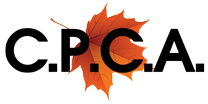Challenge Exams For People Out of Province Certification
The Challenge process allows individuals who have equivalent certification (as outlined below) and the required Trade/Practical experience to apply for a CPCA petroleum mechanic license without participating in theoretical training. Individuals are required, however, to write the appropriate examination for the license they are applying for. Exams can be written at an approved testing centre (located throughout Canada) and can be arranged once the challenge request is approved. Challenge requests are reviewed by a standing committee several times throughout the year; applicants may be subject to longer waiting periods during this approval process.
Note: The challenge process is not intended to replace the CPCA training program process.
Applicants are to be approved by the CPCA based on sufficient Trade/Practical experience and related out-of-province certification, where applicable, based on the scope of the licenses below. Approved challenge participants are supplied with access to the applicable CPCA training manual via the CPCA online learning platform.
Relevant Certification
Applicants must have the following equivalent certification to challenge the CPCA exam
- TSSA Petroleum Certification – PM1, PM2 and/or PM3
- Nova Scotia Petroleum Storage Tank System Installer Certificate – Class 1
- ITABC certification – Technician and/or Installer
PM1 – Service and Maintenance
A person who holds a PM1 license may, without supervision, service and maintain petroleum equipment and systems, and accessories essential to their operation.
- Install and remove suction pumps and related systems
- Repair and maintain suction pumps and related systems
- Repair and maintain submersible pumps, dispensers and related systems
PM2 – Underground Installation
A person who holds a PM2 license may, without supervision, install, remove, alter, test, service and maintain any type of underground installation and the equipment and accessories essential to its operation.
- Install underground tanks
- Remove underground tanks
- Install petroleum transfer systems
- Repair and maintain systems for detecting leaks and monitoring tanks
- Install and remove submersible pumps
PM3 – Aboveground Installation
A person who holds a PM3 license may, without supervision, install, remove, alter, repair, test, service and maintain any type of aboveground installation and the equipment and accessories essential to its operation.
- Install above-ground tanks
- Remove above-ground tanks
- Repair and maintain systems for detecting leaks and monitoring tanks
- Install, remove, repair, and maintain bulk handling equipment
Required Forms
- Form 3 – Verification of Trade Experience
- Go to the Documents & Forms Section under Resources to download
- Proof of applicable manufacturer certification (e.g. Xerxes, CSI, OPW, Franklin Fueling etc.)
- Employer letter attesting to work experience
Both forms must be submitted before an exam is arranged. Incomplete forms will result in processing delays.
Required Code Books
Individuals may use the following codes during exams
A copy of the latest National Fire Code** and the CCME (Canadian Council of Ministers of the Environment) Environmental Code of Practice for Above Ground & Underground Storage Tank Systems Containing Petroleum and Allied Petroleum Products booklet***
The NFC and CCME are used for reference for the exam. It is strongly recommended that you bring these two publications with you. The National Fire Code can be purchased through the National Research Council (click here for website). The CCME booklet can be downloaded for free. Click here to download
To apply:
Click here to apply online or contact the CPCA at info@cpcaonline.com for more information.
Fee:
The fee to challenge is $500.00 for each license. Payable at the time of application submission.
Exam Registration for Approved Applicants
Once an applicant is ready to write the exam, they can contact CPCA for the testing centre information for their area (see below for list of testing centres).
Exam Re-writes
If students are unsuccessful on their initial examination attempt, they are permitted to re-write after 30 days. The re-write fee is $200 plus any invigilation fees if written at an approved testing centre (varies based on test centre).
Visit the online payment page to register.
Testing Centres
Click here to download a list of testing centres
